
What Fellows Say About the ASA Minority Fellowship Program
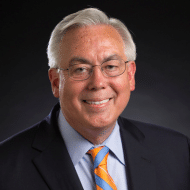
Gary Sandefur
Dean Emeritus, College of Letters and Science
University of Wisconsin-Madison
MFP Campaign Co-Chair
MFP Cohort 1, 1974-77
“I enjoyed a career as a faculty member… Dean… [and] Provost. None of this would have been possible without the support I received from the MFP… I believe that most Fellows would not have been able to do what they have done without the support of the MFP.”
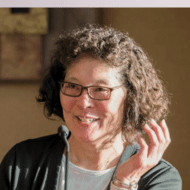
Susan R. Takata
Professor Emerita, Department of Criminal Justice
University of Wisconsin, Parkside
MFP Cohort 3, 1976-79
“The MFP made it financially possible for me to obtain a PhD in sociology, taking my career beyond what I had dreamed achievable when I began my education. However, I cannot stress enough that the MFP was not simply about funding my studies; there is no price tag that one can place on the meaningful relationships, invaluable networking, advice, and moral support needed to succeed at every stage of my educational and career journey.”
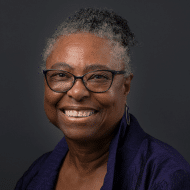
Ruth Peterson
Professor Emerita
The Ohio State University
MFP Campaign Co-Chair
MFP Cohort 3, 1976-79
“Being a Fellow fueled accomplishments and purposes throughout my career and beyond. During graduate school, it gave me a sense of identity with a group recognized as destined for success, provided mentorship and support from role models of color and otherwise, and set the stage for my receiving dissertation fellowships. [A]s faculty emerita, I find myself beaming with pride whenever I ponder the Who’s Who and the awesome accomplishments of my MFP colleagues, which span every era.”
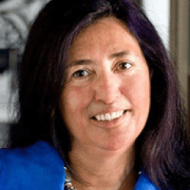
Mary Romero
Professor of Justice Studies and Social Inquiry
Arizona State University
ASA Past President (2019)
MFP Cohort 4, 1977-80
“The Minority Fellowship Program (MFP) has been instrumental in changing the face of sociology in the United States. It has become a strong institution to mentor and foster sociologists of color who are mostly first-generation college students. Over the past 50 years, MFP has enabled a collective of scholars of color to establish new sections within the ASA, and to push the boundaries of mainstream sociology to include voices previously silenced or ignored.”

Aldon D. Morris
Leon Forrest Professor of Sociology and African American Studies
Northwestern University
ASA Past President (2021)
Cohort 4, 1977-80
“At a crucial period in my academic career, the MFP pumped confidence into me, helping me recognize that I was a special type of academic capable of producing scholarship aimed at empowering the marginalized and voiceless. The specialness of the MFP derives from its success in conveying confidence and resources to generations of students with experiences similar to mine. The MFP deserves widespread support because it has proven its worth.”
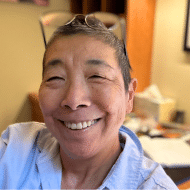
Dana Takagi
Emerita Professor of Sociology
Rachel Carson College,
University of California, Santa Cruz
MFP Cohort 6, 1979-82
“The MFP was an enormous boost for completing my graduate studies at UCB. Would I have completed my PhD had I not received support from the MFP? Maybe. Probably. But the financial support was crucial for my staying on track, moving forward in course work, and staying more or less (for Berkeley students) on track with the MA paper, qualifying exams, and dissertation prospectus.”
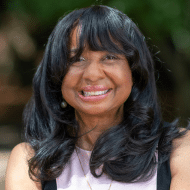
Linda Burton
Professor of Sociology and Dean
University of California Berkeley
MFP Campaign Co-Chair
MFP Cohort 8, 1981-84
“As a young single mom with four young children at the time, I can unequivocally say that I would not have completed my PhD without the ASA Minority Fellowship. Through the symbolism and power of this one MPF gift, my family now has three generations of experienced and emerging social and health scientists who are firmly committed to reducing social inequalities and mentoring others.”
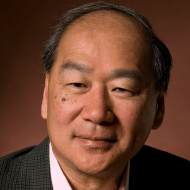
David Takeuchi
Associate Dean for Faculty Excellence
University of Washington
MFP Campaign Co-Chair
MFP Cohort 10, 1983-86
“On a whim and with hope, I applied for the American Sociological Association’s Minority Fellowship Program. To my surprise, I received the fellowship. What affected me most wasn’t so much the funds from the fellowship, but rather the validation by sociologists that I could do a doctoral dissertation project… I have always been grateful to the MFP and ASA for providing the boost I needed at the right moment.”
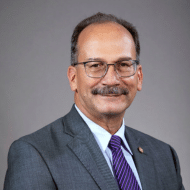
Havidán Rodríguez
President
University at Albany, SUNY
Former ASA Minority Affairs Program Director (1995-98)
MFP Cohort 13, 1986-89
“Within the field of sociology, there has been no other single program that has produced both the quantity and the quality of outstanding underrepresented minority students with PhDs. I believe that there is no other program that has significantly contributed to the widespread diversification of the field of sociology. Actually, some of the most prominent names in the field of the sociology of mental health; diversity, equity, and inclusion; race and ethnicity; Latino/a studies; gender studies; and migration—among others—have emerged from the rank-and-file of the MFP.”
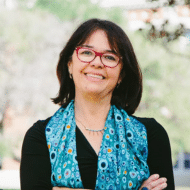
Cecilia Menjívar
Dorothy L. Meier Social Equities Chair and Professor of Sociology
University of California-Los Angeles
ASA Past President (2022)
MFP Cohort 17, 1990-93
“[T]he MFP program… was transformative for me as a sociologist, a scholar, and colleague. It introduced me to a wonderful group of students and faculty, and to friendships I still cherish. And receiving this award at a time when some doubted the relevance of my work for the field gave a stamp of approval to my research, a much-needed recognition from the sociological community that my research was worth doing. It shaped the course of my career, as I believe it has done for many MFP Fellows over the years.”
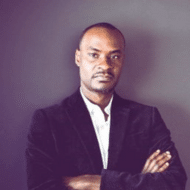
David Cort
Associate Professor of Sociology and Associate Chair
University of Massachusetts Amherst
MFP Cohort 28, 2001-04
“While imparting a sense of belonging has been crucial to my development as a scholar, the most important benefit of being an MFP Fellow is the fact that this program gave me an opportunity to launch a career when I didn’t have the tools to do so in the most effective way.”
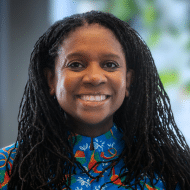
LaShaune P. Johnson
Associate Professor, Department of Clinical Research and Public Health
Creighton University
MFP Cohort 29, 2002-05
“My MFP experience helped open the doors for my first NIH postdoctoral experience at the University of Connecticut medical school… As I reflect upon the years since my time as a Fellow, I cannot help but smile. No, I didn’t grow to become a scholar exactly like my MFP ancestors; I don’t regularly fill auditoriums with students clamoring to learn about my work, nor am I seen adjusting my glasses for a spicy segment on the local primetime news. But I have fulfilled my own kind of promise.”
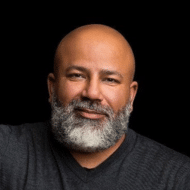
Anthony Ryan Hatch
Professor of Science in Society
Wesleyan University
MFP Cohort 31, 2004-07
“The MFP represented a life-changing validation for me at a time when I felt like a walking promissory note. It made the faculty in my institution (and others) take my early efforts at research seriously. Being accepted into the MFP boosted my confidence and inspired a sense in me that my research was solid and interesting to other people in the discipline. It sent a clear signal to me that my work was promising; I had promise!”
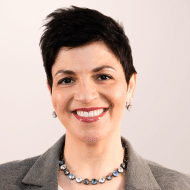
Lisette Garcia
Chief Research Officer
Hispanic Association on Corporate Responsibility
MFP Campaign Co-Chair
MFP Cohort 33, 2006-09
“I have made so many connections through the MFP and I have a cadre of colleagues and lifelong friends as a result. And, although my career has taken a path outside of the traditional route, I choose to stay connected to the discipline and that is largely because of the MFP program and what it has meant to me.”
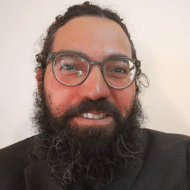
Louis Edgar Esparza
Professor
California State University – Los Angeles
MFP Cohort 35, 2008-09
“My MFP Fellowship came at a time when I was completing my fieldwork in Colombia while still at Stony Brook. It gave me the time to translate and code my data, and to write the early drafts of what ultimately became Fields of Fire: Emancipation and Resistance in Colombia. MFP also connected me with intelligent colleagues across the country, some of whom I still contact when embarking on new ventures.”
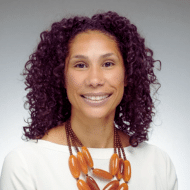
Anna Haskins
Andrew V. Tackes Associate Professor of Sociology and Associate Director of Notre Dame’s Initiative on Race and Resilience
University of Notre Dame
MFP Cohort 39, 2012-13
“MFP has offered a vibrant and warm intellectual community that has supported my scholarship and professional growth. MFP has supported SO MANY prominent and emerging brilliant scholars who are publishing in all the ASA journals, writing influential books, and making a public impact. MPF saw that first and validated that potential with its fellowships, which is incredible.”
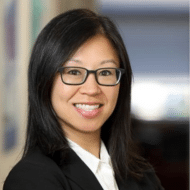
Emerald Nguyen
Program Officer, Division of Behavioral and Social Research
National Institute on Aging
MFP Cohort 42, 2015-16
“The Minority Fellowship Program introduced me to a community of scholars within the discipline that welcomed me with open arms. It offered me a cohort of colleagues, each doing their own important and exciting research… As we approach the 50th anniversary of the Minority Fellowship Program, I am reminded of how this ever-growing community is a testament to the way that sociologists can make an impact at all levels and in all sectors of our society, from within academia to within the federal government.”
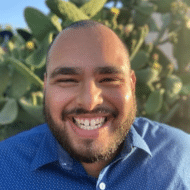
Uriel Serrano
Postdoctoral Scholar
University of California – Irvine
MFP Cohort 47, 2020-21
“The MFP has provided me with friends and colleagues I can turn to for guidance and support. When I was a grad student, MFP fellows supported me as I applied for fellowships, mapped out my dissertation, and navigated the job market. Now, as a postdoctoral scholar, MFP fellows are giving me the tools, insight, and support I need as I turn my dissertation into a book… They all have modeled an ethics of care that now informs my approach to mentorship.”